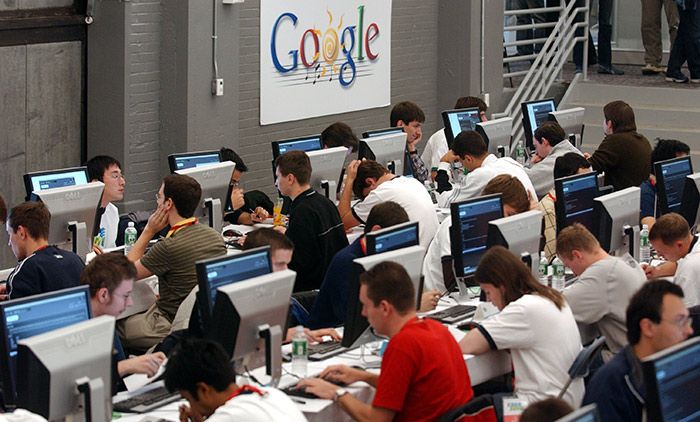by JESS BIER
 PHOTO/Ramin Talaie/Corbis/Getty Images
PHOTO/Ramin Talaie/Corbis/Getty Images
In the summer of 2017, a now infamous memo came to light. Written by James Damore, then an engineer at Google, it claimed that the under-representation of women in tech was partly caused by inherent biological differences between men and women. The memo didn’t offer any new evidence – on the contrary, it drew on longstanding sexist stereotypes that have been disproven time and again, and it included only the vaguest mention of decades of research in relevant domains such as gender studies. Given the expansive resources at Google, his omissions didn’t stem from a lack of access to knowledge. Instead, they pointed to an unwillingness to accept that social theory is actually valid knowledge in the first place.
That Google memo is an extreme example of an imbalance in how different ways of knowing are valued. Silicon Valley tech companies draw on innovative technical theory but have yet to really incorporate advances in social theory. The inattention to such knowledge becomes all too apparent when algorithms fail in their real-life applications – from automated soap-dispensers that fail to turn on when a user has dark brown skin, to the new iPhone X’s inability to distinguish among different Asian women.
Social theorists in fields such as sociology, geography, and science and technology studies have shown how race, gender and class biases inform technical design. So there’s irony in the fact that employees hold sexist and racist attitudes, yet ‘we are supposed to believe that these same employees are developing “neutral” or “objective” decision-making tools’, as the communications scholar Safiya Umoja Noble at the University of Southern California argues in her book Algorithms of Oppression (2018).
In many cases, what’s eroding the value of social knowledge is unintentional bias – on display when prominent advocates for equality in science and tech undervalue research in the social sciences. The physicist Neil DeGrasse Tyson, for example, has downplayed the link between sexism and under-representation in science. Apparently, he’s happy to ignore extensive research pointing out that the natural sciences’ male-dominated institutional cultures are a major cause of the attrition of female scientists at all stages of their careers.
By contrast, social theorists have shown a keen interest in illuminating how unjust social relations inform the development of science and technology. In the 1980s, the anthropologist Lucy Suchman, now at Lancaster University in the UK, showed that even the employees at Xerox in California struggled to use the copy machines the company produced – leading them to laugh, mumble to themselves, and repeatedly ask questions such as: ‘Where’s the start button?’ The machines’ designers had made an effort to write clear instructions, but people interpreted those guidelines in different ways, depending on factors that included their gender and class. The result was a machine that made sense to the engineers themselves, but didn’t work so well for everyone else.
Aeon for more
